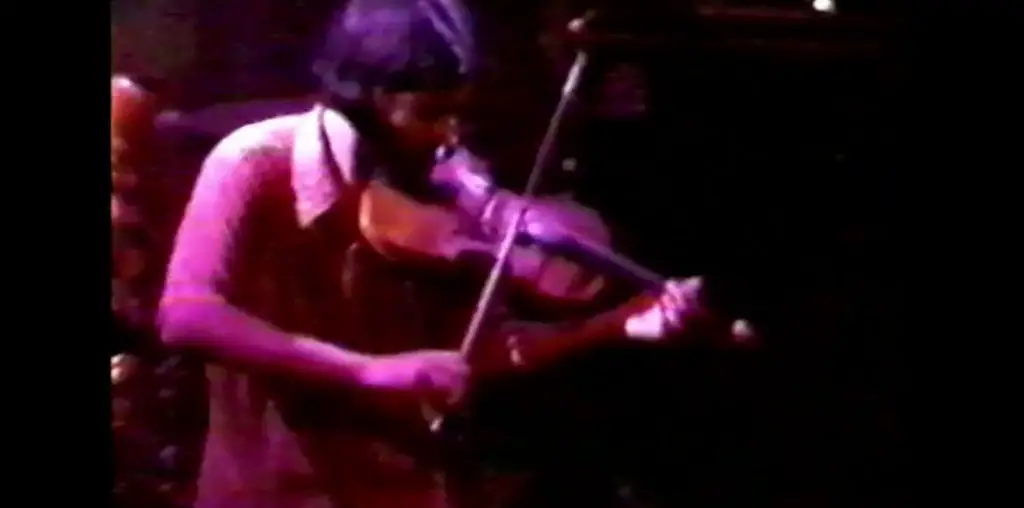
HAPPY HALLOWEEN! Mervyn LeRoy’s The Bad Seed (1956) premiered an anxiety that would soon blossom in the American cinema: a fear that our offspring could prove rotten, devilish. Children were the purest of tabula rasas on the early screen.
A film like Reefer Madness (aka Tell Your Children stresses that our youths are innocent at heart unless overcome by a threat. By the Eisenhower era, the Red Scare transformed political threats into aliens, which reached our susceptible pre-citizens by ’63 in Children of the Damned. Though the kiddies became dangerous, it was hardly their fault.
But little Rhoda (Patty McCormac) in The Bad Seed really is evil – so much that we’re meant to think she’s less a victim than a rotten brat relishing in it. Rhoda’s near control via fear rings a lot like Anthony’s from the 1961 Twilight Zone episode “It’s a Good Life” – though the story on which it was based, by Jerome Bixby, appeared in 1953, a year before William March’s novel The Bad Seed. Having brought the human monster into the American horror film before Psycho (while the French Georges Franju, in Eyes Without a Face, concurrently touched upon similar material), The Bad Seed introduced the evil spawn before Rosemary’s Baby launched a trend (The Exorcist, The Omen, It’s Alive!) well detailed by David J. Skal in The Monster Show. The devil took full credit by then, but was it possession, or just free will in the extreme, that’s wrong with Rhoda?
The film suggest something else. Late it the story, while mommy has already hatched her plan to give a lethal dose to her evil seed, mommy reads her a bedtime story and painfully pauses when it mentions the presence of a father. Dad’s being away the whole time was likely to ease the plot – less complications to deal with, just as many films present a single parent to limit the amount of family conflicts. Father phones only once, when mother – with short hair and dress that suggests little of the 50s housewife – assures him all is well. He doesn’t call again, until in person when mommy’s already overdosed her kid and pointed the pistol to herself (having survived, unlike the novel and play version, only though golden-age-Hollywood magic). The only single male around is Leroy (a little self-deprecation by the director?), a demented maintenance man who naps in the boiler room. There’s enough for modern viewers to think Kruger, but more chronologically, for viewers at the time to think, at the least, he shouldn’t be given access to kids. He proves devious and must pay by the film’s end. Daddy appears, but only to assess the damage.
And so must Rhoda, even though the film drops a twist by revealing her alive near mommy’s hospital bed (and after the nasty discovery that the seed is a family legacy that skips a generation – granny was a crazy mama). The Hand of God gets Rhoda via a thunderstorm at the coda, really the business-end of the Production Code. The “secret” villain is the missing father – or we should say, the mother for trying to child-rear by herself (while Rhoda’s backstory murders aim to establish credibility). The bad seed is dead – but single parents, be warned.

Amen! They are my very favorites, too—and Hitchcock is my all time hero! Rope is most closely linked with The Bad Seed and Compulsion in regard to exploring the psychopathic personality. Norman Bates was definitely a sicko, but in Rope, The Bad Seed, and Compulsion (based on the real lives of psychopathic murderers, Leopold and Loeb), the study of killers who appeared normal, upstanding and highly intelligent was a fairly unique thing in narrative film.
Sure, sure…but as a landmark/narrative film about inherited criminality (the fact that she was a lovely looking little girl, making this all the more disturbing), this film was huge! It was one of those movies that surely changed my life, and the interests I explore to this day.
Winning a Golden Globe, and 4 nominations for Oscars didn’t hurt “The Bad Seed,” either.
What I did notice about the film (which I saw yet again, after reading your review), is how it felt so much like a play (or a film-play hybrid)! There were a ton of films made this way, back in the day— including “Rope,” and the provocative, “Compulsion.”
Not quite adding to the conversation, but I just had to say that Rope is by far my favorite Hitchcock film, followed closely by Vertigo and Psycho.
I agree with you on a strictly textual level, Amy. But I’m thinking about the hyper-conservative subtext, which is not at all nice to single mommies/parents. I bet you the story would have never flew if Daddy stayed home. In the Eisenhower era, what could harm the solid family unit? James Dean’s Jimmy Stark falls from grace, but that’s because his family is falling apart. Script Seed with Daddy around, and Rhoda would have magically transformed into the true winner of the penmanship award.
In the case of “The Bad Seed,” I strongly doubt that daddy’s being home more often would have helped little Rhoda. As I remember (and I saw this film as a child), the child-psychopath’s mommy harbored the issues of her family, and pretty much kept this from her husband. In that respect, mommy was replete with psychopathology herself, albeit more passive than that of her daughter.
It was particularly interesting (and kind of funny in a sick way) to watch Rhoda wipe out her counterpart— the budding, child-molester/janitor who lived in the basement.
I’m pretty sure that “The Bad Seed,” was the first of its kind to explore the notion of inherited- psychopathology. And in spite of the hard-core censorship that the filmmaker had to contend with, it’s still in my mind, a superb, classic film, and highly provocative to this day.